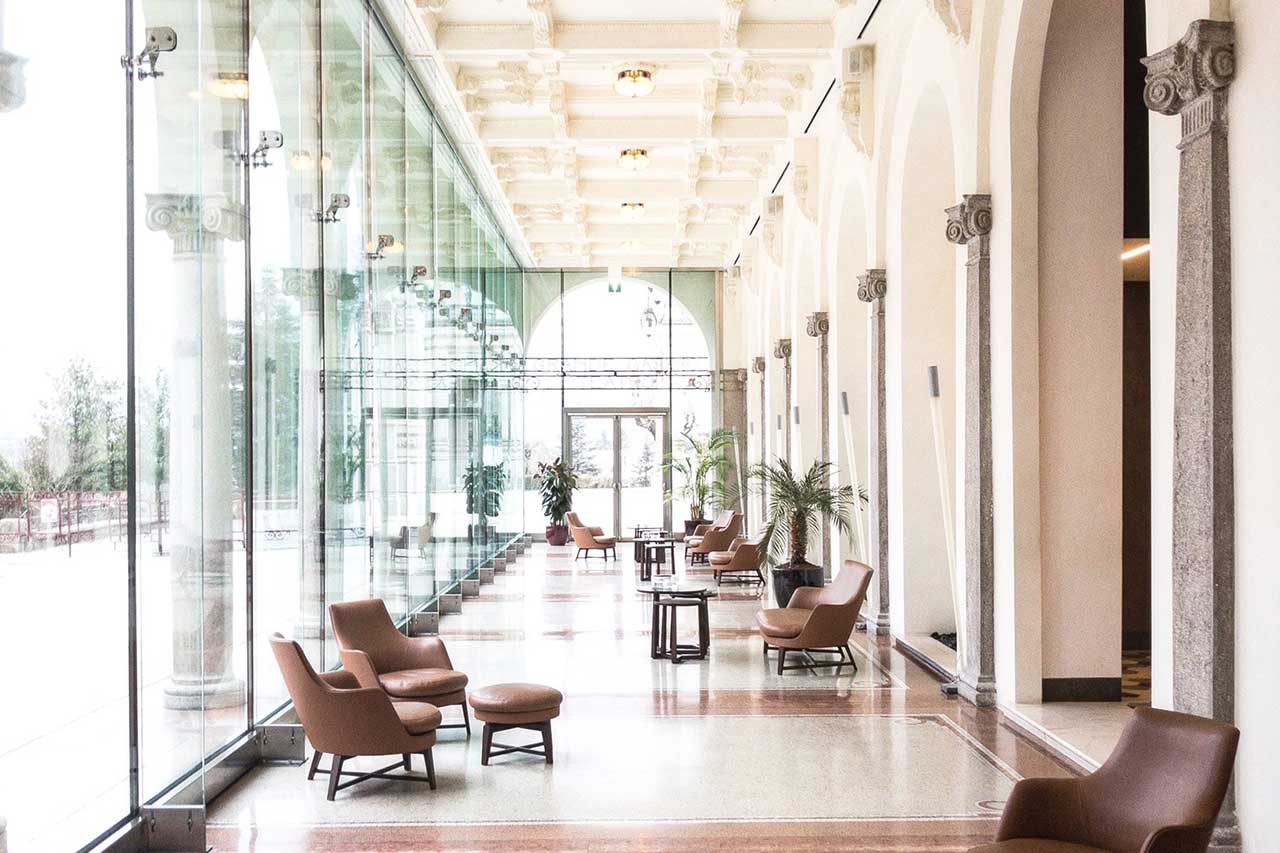
Demand side management experts recognize the value of high performing solar control and energy conservation window film installations as efficient energy conservation measures that provide rapid return on investment and generate substantial savings on utilities expense. Additional benefits include lowering the load on HVAC equipment that ultimately results in reduced HVAC maintenance expense.
Select window film dealers can provide a report utilizing sophisticated software that accurately predicts energy usage and savings before and after window film installation – a great tool to justify your investment. Preferred energy analyses programs are algorithm based and are supported by the DOE. Many window film installations provide a return on investment in as little as two to three years through energy cost savings, and select energy conservation films are LEED rated. To help you with LEED certification, an informed window film dealer can provide you with LEED rating information for specific window films. Additionally, authorized dealers will provide a manufacturer’s certification and supporting documentation for potential tax or utilities rebates.
For the commercial market, solar control or energy conservation window films are purchased for a variety of reasons including energy savings, tenant/employee comfort, improved HVAC equipment longevity and maintenance, as well as for aesthetics. Retail markets lean toward solar load reduction, glare reduction, and fade reduction of window display items while maintaining two-way visibility.
A common “cry for help” from many property owners, facilities managers and retail business owners is that their tenants, employees or customers are complaining about being too hot or too cold. Solar control window films substantially reduce heat gain in warmer months and heat loss in colder months. After a quality window film retrofit, drafts and temperature imbalances are effectively reduced, HVAC system management improves, and building owners and managers receive fewer complaints from unhappy tenants, employees and customers.
Although nothing stops fading, window film helps reduce fading and prolongs the life of furnishings as much as two to five times. An item with a typical life of five years may last ten or longer depending on the performance of the film selected. Window film addresses the three major causes of fading – solar heat, visible light and ultraviolet rays. A professional installation of a high performing solar control window film will block up to 99 percent of the sun’s harmful UV rays – the single largest cause of fading. Testament to this fact, there are window films on the market today that are recommended as effective UV protectants by the Skin Cancer Foundation.
For decades, window films have been used to improve a building’s energy efficiency and reduce fading. However, those benefits came with compromises. Darkened rooms and mirrored windows were disadvantages. Although a variety of tints and highly reflective films are still available and useful today, current options range from optically clear to opaque privacy films, from metalized to nano-ceramic to non-metal based, multi-layered films…and a plethora of choice within each category. A particular metalized film may have a higher heat rejection and energy savings benefit than a specific non-metalized film, however, a non-metalized or ceramic film may be more optically clear and will not interfere with cell phone and WiFi signals. Building owners may want to compromise a slightly higher heat reduction benefit of a metallized film for a higher glare reduction benefit of a ceramic film. Additionally, all window films have safety and security benefits which vary in performance and strength according to the particular film. Safety films are manufactured to hold glass in place in the event of violent weather, bomb blast, burglaries or smash-and-grab crime.
Film options can become overwhelming. A knowledgeable sales representative will be able to help determine the appropriate window film for your application. Prioritizing your needs is important. A trained professional will guide you in your choice of window film to best resolve your problem. Ultimately, there is a window film product on the market that will meet your requirements, whether they are energy conservation, heat gain and loss reduction, glare reduction, fade protection or safety goals.
Corporate Location: 23042 Mill Creek Drive, Laguna Hills, CA 92653
Copyright 2026 - American Window Film | All Rights Reserved | Contractor's License #1054307